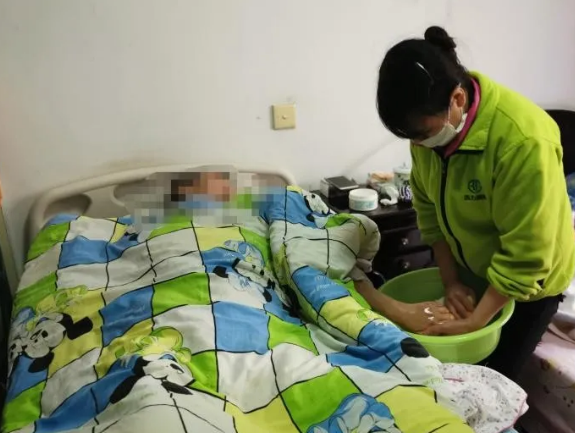Domestic service industry resumes confidence in Shanghai
Due to the COVID-19 epidemic, Shanghai's domestic service industry has almost shut down.
On one hand, household management companies are facing the problem that many employees are still in their hometowns, and that most employees who have returned to Shanghai are still in isolation at their homes in the city. On the other hand, the outbreak has disrupted the pace of work and life of local citizens, with many working from home and having more time to do housework and take care of the elderly rather than hiring someone to perform those duties.
Decreased supply and demand has had a great impact on the income of Shu Jilan, an employee at a nursing station run by the Changqiao community, as her daily workload has been reduced from a dozen orders before the outbreak to two or three orders now. During the epidemic period, the quality of domestic services has declined because so much time has had to be devoted to epidemic prevention and control, disinfection and sterilization.
Before becoming a housekeeper in Shanghai, Shu faced many hardships. She comes from Heba village in the Gelao and Miao autonomous county in Zunyi, Southwest China's Guizhou province. She was from a poor family and her husband has been seriously ill for a long time. They also have two children to support.
On the eve of National Day in 2017, the members of Shanghai homemaker poverty alleviation alliance and Shanghai Xinhujia Homemaker Company responded to the calls of a "targeted poverty alleviation project". They cooperated with the Shanghai Municipal Commission of Commerce and Zunyi city and introduced the first group of "female housekeepers from Guizhou", including Shu Jilan, into Shanghai. Later, Shu took part in professional training and qualified as a domestic service worker. In April 2018, she gained her certificate of old-age care (medical care) and qualified for nursing work.
Shu said that before the epidemic outbreak, she had a full schedule not only serving more than 10 long-term care seniors for an hour a day, but also taught two apprentices. At that time, she had been able to earn more than 10,000 yuan ($1,440) a month and was able to support her elder son in high school, her younger son in primary school. At that time, her husband's condition was relatively stable and the family had hope. Because of that income, Shu had planned to return to Shanghai during the Spring Festival holiday after spending the festival "peak" back home, but the sudden outbreak of disease disrupted that plan.
Due to the decrease in orders and the resultant decrease in income, Shu Jilan was worried about her future in the city, but the company's concern eased her worries. "The company has a lot of anti-epidemic materials for housekeepers. We can get two or three masks every day," she said.
Although the company's income has also been sharply reduced, it has promised that during the epidemic period the basic salary for long-term care employees would remain unchanged, as will the rent subsidy of 800 yuan per person per month. The company has also opened online training courses and a psychological counseling hotline for their workers.
"Compared to the housekeepers who can't get out, I'm lucky to have a job," she said. "I think the difficulties are temporary, and there is something better to look forward to."

Shu Jilan takes care of an elderly person in Shanghai during the epidemic outbreak. [Photo/WeChat account: scofcom]

